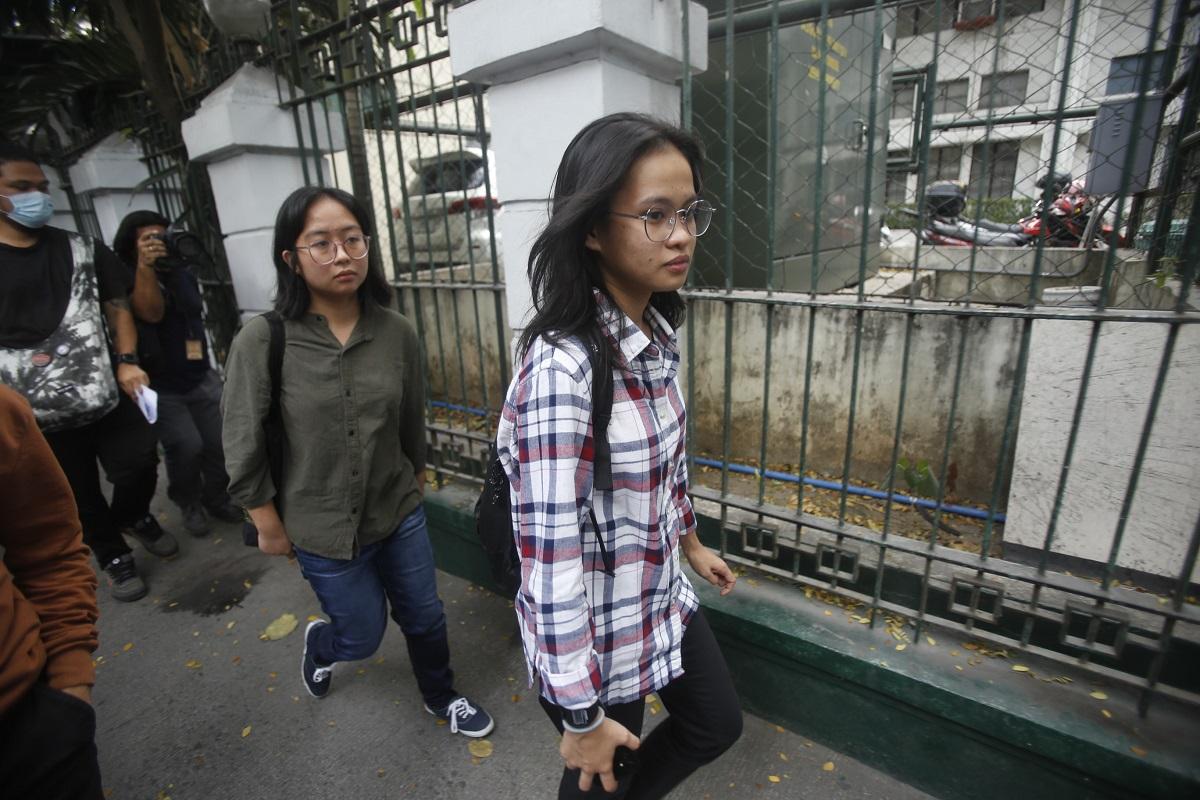CA junks activists Tamano, Castro appeal for writs of amparo, habeas data

The Court of Appeals (CA) has junked the appeal of two environmental activists on the dismissal of their petition for writs of amparo and habeas data.
In a nine-page resolution promulgated on October 29, the CA former Special Eight Division (Division of Five) denied the motion for reconsideration filed by Jonila Castro and Jhed Tamano for lack of merit.
“The rest of the arguments in petitioners' motion have been exhaustively and painstakingly discussed in the Decision. There is no longer any need to address them anew,” the CA said.
GMA News Online sought comment from Tamano and Castro’s camp but has yet to receive a response as of posting time.
According to the CA, Castro and Tamano’s argument that the smooth transition from their abduction to their surrender to the 70th Infantry Battalion shows the state’s acquiescence in their abduction is speculative.
“Contrary to their argument, it would take more than a smooth transition to hold respondents accountable and responsible for their abduction,” the CA said.
The court reiterated that the transition was not sufficiently shown to be indicative of government complicity.
Aside from this, the CA said it attributed no evidentiary weight to Tamano and Castro’s claim that they saw the logo of the 70th Infantry Battalion on the laptop of their interrogator.
It said this was not shown on their judicial affidavit.
Meanwhile, the CA said it is only rightful to require the testimonies of other witnesses and other corroborative evidence.
“The burden to establish petitioners’ claims by substantial evidence rests on them, and they cannot merely rely on the supposed failure of respondents to prove either their defenses or their exercise of extraordinary diligence,” it said.
It also disagreed with the petitioners’ claim that the court should have been more flexible and protective in its interpretation of the writ of habeas data.
The court stressed that Tamano and Castro wanted the coverage of the writ to be extended to all kinds of information.
“Petitioners would do well to be reminded that it is by their own prayer, which covers ‘any and all information’ about them, as well as their failure to specify this information during trial, that essentially prevented this Court from fully determining their entitlement to the privilege they now seek,” it said.
The writ of amparo is available to persons whose right to life, liberty, and security are being threatened or violated by public officials or employees or private individuals or entities. It covers extralegal killings and enforced disappearances, or threats.
Meanwhile, the writ of habeas data is a remedy available to a person whose right to privacy, liberty, or security is violated or threatened with violation by a public official or a private individual who gathers, collects, or stores information on the aggrieved party, their family, home, and correspondence.
In February this year, the Supreme Court granted Tamano and Castro writs of amparo and habeas data, though the NTF ELCAC said the case was not yet over as this was remanded to the CA.
In September 2023, the NTF ELCAC claimed that Tamano and Castro surrendered to the 70IB in Doña Remedios Trinidad, Bulacan.
The anti-insurgency task force presented the two at a press conference to debunk reports of their abduction. However, the activists said they were abducted by the military.
In a statement, National Security Adviser Eduardo Año welcomed the court’s decision.
“These claims eventually collapse once placed under the burden of scrutiny and proof by unbiased 3rd party organizations. As this case clearly proves, the alleged abduction is clearly without basis and is pure and simple propaganda to discredit the government,” Año said.—AOL, GMA Integrated News




